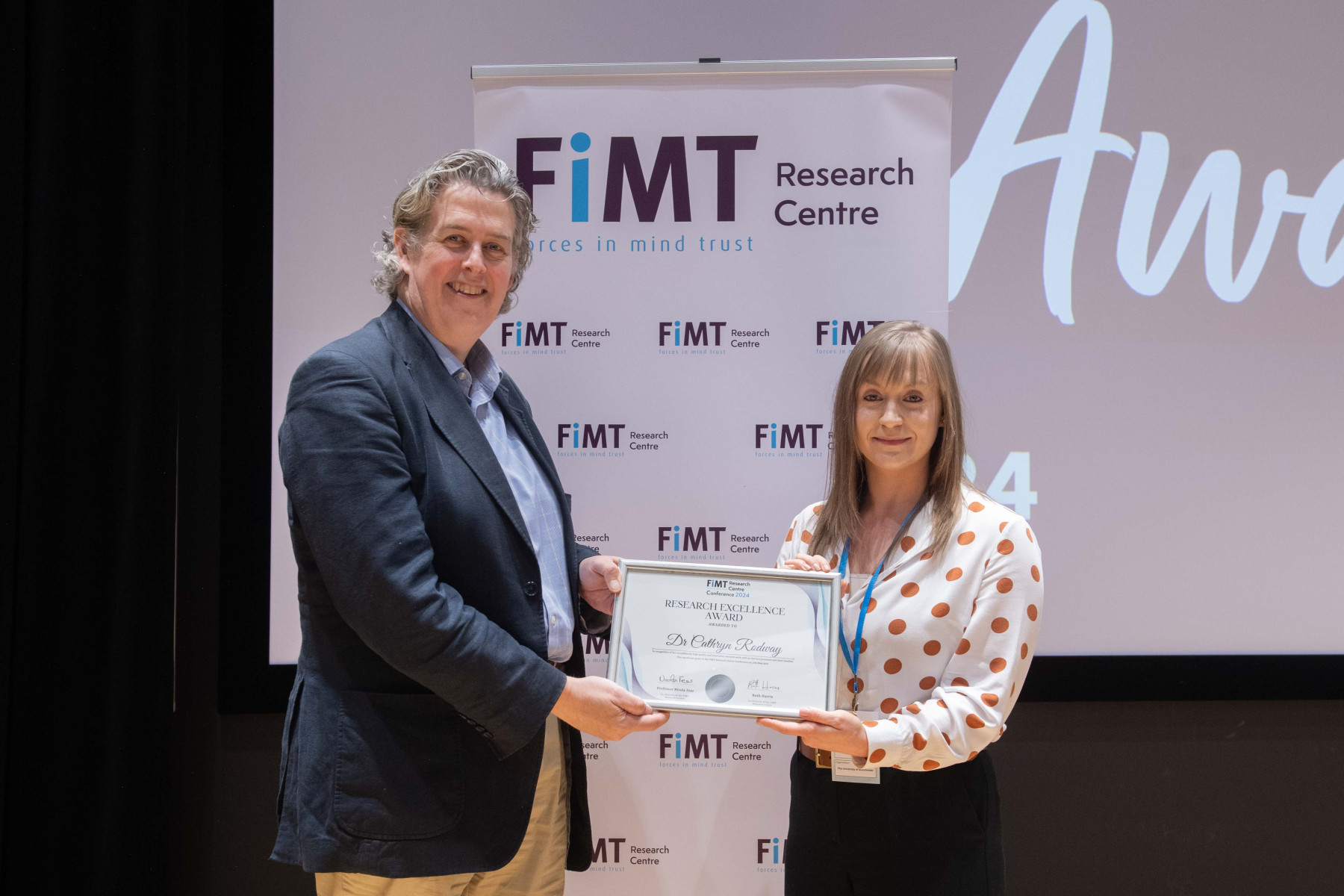Dr Cathryn Rodway bags Research Excellence Award

Dr Cathryn Rodway from The University of Manchester has been given the Research Excellence Award at the Forces in Mind Trust Research Centre Conference 2024 for her work on a research project exploring suicidality in the UK Veteran community.
Jim Macleod CB CVO, Chair of the Forces in Mind Trust Board, presented the award at this year’s conference last week. The award was accepted on Dr Rodway’s behalf by co-author, Dr Jodie Westhead.
The Research Excellence award recognises an individual who has produced a piece of high quality and innovative research involving UK ex-Service personnel over the last year.
Dr Cathryn Rodway said “I am absolutely delighted that our work examining suicide risk in former personnel of the UK Armed Forces has been recognised in this way. This is an important study adding to our understanding of the causes and rates of suicide in veterans”.
Ruth Harris, Co-Director of the FiMT Research Centre said “Dr Rodway’s high-quality work has made a valuable contribution to understanding suicidality in the UK Veteran population, and how practice and policy can be adapted to support UK Veterans mental health. We are pleased to have presented her with this award in recognition of her work”.
Dr Cathryn Rodway is a Programme Manager at the National Confidential Inquiry into Suicide and Safety in Mental Health (NCISH) and a Research Associate at the University of Manchester. She is receiving the 2024 Research Excellence award for her work on the study ‘Suicide after leaving the Armed Forces 1996 -2018: a cohort study’. This project examined the rates and causes of suicide in UK ex-Service personnel in comparison to the general population, looking at data for 458,000 Veterans over a 23-year period.
The project demonstrated robust methodology, high-quality research and was of particular importance as it provides much-needed insight into suicide within the UK Veteran community. To date, there have been few studies examining suicide in Veterans. This study found that while UK Veterans as a whole show no higher risk of suicide compared to the general population, UK Veterans under the age of 25 face 2 to 4 times increased risk. Additionally, despite there being a range of UK support services available for Veterans experiencing poor mental health, the study highlights that Veterans, particularly those who are younger, may be less likely to seek help.
In response to these findings, Dr Rodway and her colleagues also proposed policy and practice suggestions aiming to improve and maintain access to mental health care for Veterans and more general suicide prevention measures. These include encouraging Veterans to seek help and campaigns to reduce the stigma of engaging with support services. The study provides important evidence that can help towards understanding how Veterans may struggle with poor mental health and should help the UK to tailor support to meet their needs.




